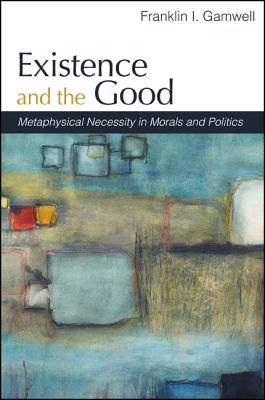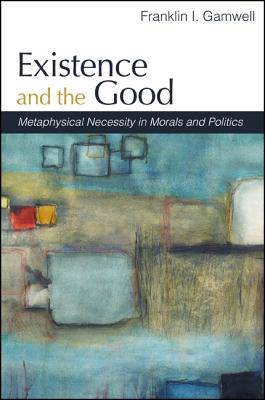
- Afhalen na 1 uur in een winkel met voorraad
- Gratis thuislevering in België vanaf € 30
- Ruim aanbod met 7 miljoen producten
- Afhalen na 1 uur in een winkel met voorraad
- Gratis thuislevering in België vanaf € 30
- Ruim aanbod met 7 miljoen producten
Existence and the Good
Metaphysical Necessity in Morals and Politics
Franklin I GamwellOmschrijving
Argues that morals and politics require on a metaphysical backing and proposes a neoclassical metaphysics.
Morals and politics depend on a metaphysical backing. All reality is marked by certain necessary features and a divine purpose inherent in all reality defines the good to which all human life should be directed.
These are bold assertions in a climate where the credibility of metaphysics is widely denied. Indeed, for the past two centuries, Western philosophy has been marked by a consensus that questions about moral and political life should be considered separately from questions about ultimate reality. In this challenging work, Franklin I. Gamwell defends metaphysical necessity against both modern and postmodern critiques. The metaphysics vindicated is not the traditional form both critiques typically have in view, however. Instead, Gamwell outlines a neoclassical project for which Alfred North Whitehead and Charles Hartshorne are the main philosophical resources. As it maintains the significance of theistic metaphysics, the book makes no appeal to religious authority but solely to common human experience, and on this basis articulates principles of human purpose and democratic justice.
Specificaties
Betrokkenen
- Auteur(s):
- Uitgeverij:
Inhoud
- Aantal bladzijden:
- 219
- Taal:
- Engels
Eigenschappen
- Productcode (EAN):
- 9781438435930
- Verschijningsdatum:
- 1/06/2011
- Uitvoering:
- Hardcover
- Formaat:
- Genaaid
- Afmetingen:
- 157 mm x 231 mm
- Gewicht:
- 430 g

Alleen bij Standaard Boekhandel
Beoordelingen
We publiceren alleen reviews die voldoen aan de voorwaarden voor reviews. Bekijk onze voorwaarden voor reviews.











